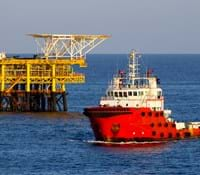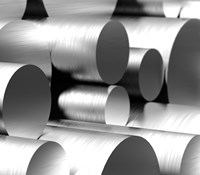Metallprisnyheter januari 2024

The metal markets are in a waiting position right now. Since December, another factor has been added to the uncertainty in the market: the situation in the Red Sea. If the situation escalates, it could impact the metal prices.
Macroeconomic developments
2024 has been calm so far. We expect this to continue at least until the Chinese New Year in February.
Europe and USA
In Europe, inflation is decreasing as expected, and interest rates are following suit. However, in the USA, the latest inflation figures from January 11 were higher than expected. This has caused some uncertainty about interest rates in the USA.

Copper
At the end of December, the copper price rose rapidly, but it has since fallen again.
Aluminium
The Chinese automotive industry has reduced production by 20% in January and February, and a similar development in Japan has caused the aluminium price to fall.
On the other hand, premiums in Europe have increased for the first time in 8 months, which could be a sign that demand for aluminum is starting to rise again – but it is far from certain.
Like copper, aluminium experienced a surge in December but has fallen again.
Over the past 1.5 years, aluminium has had very strong support around 2,110 USD and has not fallen below that level.

Stainless Steel
The stainless steel market is very interesting right now. Everything is quiet, but something needs to happen to restore balance on the market.
We expect that this balance will come in the form of slightly rising prices and maybe a modest increase in demand heading into the spring.
We do not yet know if CBAM (The EU’s Carbon Border Adjustment Mechanism) will affect prices. The first reporting deadline is at the end of January.
Commodities
As we have previously mentioned, nickel fell more than 40% during 2023. So far, we are seeing an even lower level in 2024.
Nickel was expected to be in high demand for the green transition, but we have not seen this effect yet. Instead, nickel was the absolute bottom performer among generally declining metals in 2023.
We expect that this is a temporary situation and that the demand for nickel will eventually cause the price to go up.
Molybdenum is steady at a decent price, which is likely to remain unchanged for the time being.
Sheets and plates
The market is slowing down, and European mills are still struggling to raise the base price. On the other hand, alloy surcharges are decreasing, so right now the price is stable.
However, there is an imbalance where prices for end-users are lower than the procurement cost. This will need to change.
The solution for the mills seems to be a combination of downscaling production and the EU Commission's investigation into material from Taiwan, Turkey, and Vietnam, which seems to enable the mills to raise the prices.
Therefore, we expect higher prices at the beginning of 2024.
Bars
The base prices on bars are stable, but alloy surcharges are decreasing even more than for plates.
The lead time from European mills has returned to a normal level, but specialty grades still have longer lead times.




















